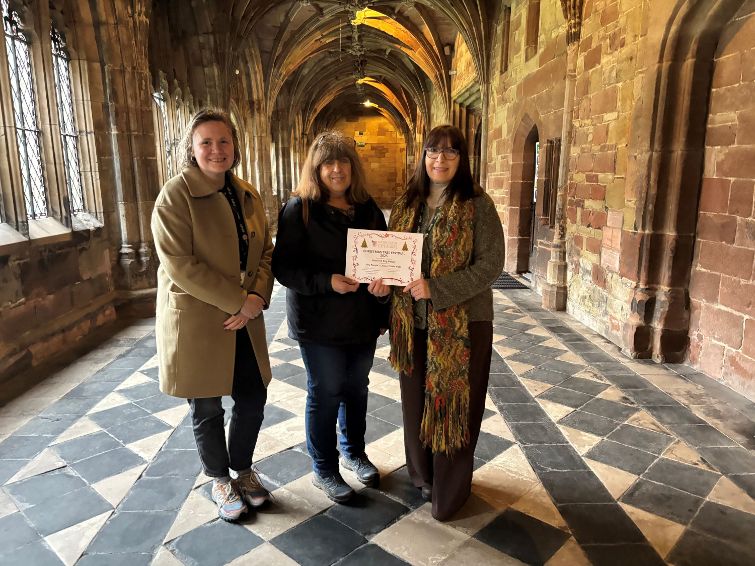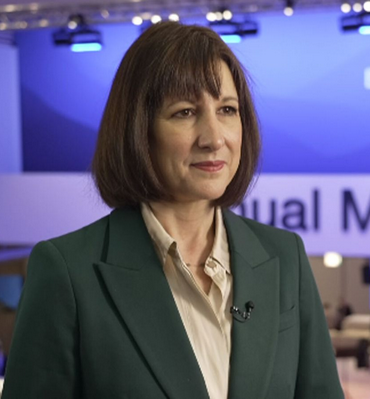The UNESCO International Memory of the World programme has recognised the immense significance to world culture of the ‘Shakespeare Documents’ – the key archival sources for William Shakespeare’s biography. This material now has equivalent status in the documentary sphere as the pyramids have for the world’s built heritage.
The successful nomination was led by the Shakespeare Birthplace Trust in partnership with The National Archives, Worcestershire Archives and Archaeology Service, the College of Arms, the British Library and London Metropolitan Archives in the UK, and the Folger Shakespeare Library in Washington, D.C, USA. Together these specialist archive and library repositories care for the precious ‘Shakespeare Documents’.
Their inclusion on the International Memory of the World register recognises the universal cultural and historical value of 90 documents relating to Shakespeare’s baptism, burial, family matters, property records, legal actions and business dealings.
Amy Hurst, Collections Archivist at the Shakespeare Birthplace Trust said, “The documentary trail left by Shakespeare during his life time provides a rich narrative of his life, giving unique insights into his personal circumstances and how these may have influenced his creative work. We hold 31 of the hand-written documents from Shakespeare’s lifetime that mention him by name and provide a vivid insight into his life as an Elizabethan gentleman and businessman. This material allows audiences to connect with Shakespeare, getting closer to the world’s most celebrated poet and playwright.”
The international registration follows the successful collaboration between the Shakespeare Birthplace Trust and The National Archives, since their ‘Shakespeare Documents’ entered the UK UNESCO Memory of the World programme in 2014. This led to a special exhibition to mark the 400th anniversary of Shakespeare’s death in 2016, and the return of Shakespeare’s will - loaned by The National Archives - to Stratford-upon-Avon for the first time since it was written. “The attention and excitement this generated demonstrated the vibrancy and draw that documentary heritage can have,” said Amy Hurst. “Our mission as a charity is to promote the enjoyment and understanding of Shakespeare’s works, life and times. It is tremendously exciting to be working with our international registration partners to open up even more opportunities to promote these documentary treasures and engage with international networks and audiences.”
UNESCO’s International Memory of the World initiative works specifically with documentary heritage - manuscripts, oral traditions, audio-visual materials and publications – that have “universal value” which transcends geographical and cultural boundaries. While the first principal of the programme is to safeguard material, from neglect, disaster or deliberate destruction, the internationally recognised status also opens up funding opportunities for conservation, digitisation, and use of innovative technologies to widen access.
Dr Katy Mair, Head of Early Modern Records at The National Archives, said, “You often hear it said that we don’t know much about Shakespeare; the personality behind the plays. But it is possible to piece together a substantial amount about his life. The Shakespeare documents held by The National Archives form the largest collection of its kind and feature nearly half of all known contemporary references to his life – including four of his six known signatures.
“Our collection provides a priceless perspective on Shakespeare’s life in London. It shows him appearing as a resident in the Elizabethan city, with the documentary trail then charting his rise in fortune, both professional and financial, reaching the heady heights of success at the court of James I and ending with his famous will. Paper and ink analysis of the three-page manuscript conducted in 2016 has forced scholars to reassess many of the assumptions about Shakespeare’s family life and death. He was a canny businessman who revised his will several times during his lifetime to provide for his family.
“We are pleased to see the global significance of these 400-year-old documents being recognised by the UNESCO International Memory of the World Programme.”
Dr Lisa Snook, User Services Manager, Worcestershire Archives and Archaeology Service, said, “Three documents in our collections at The Hive, Worcester, help to tell the story of Shakespeare's personal life in Stratford rather than his literary life. The bond for the marriage of William and Anne, and the subsequent recording of the marriage licence in the Bishop of Worcester's register of 1582 are part of the vast Diocese of Worcester collection. They show the process through which Shakespeare sought to marry, and in turn they reveal much about his circumstances at the time. The will of Thomas Whittington gives a fascinating insight into his personal networks and connections in Stratford, as well as the connections of his wife and her philanthropic work. Thomas names Anne Shakespeare and specifically requests that she distributes money to the poor of Stratford. We are very proud of our Shakespeare connections, and are delighted that the collective documents relating to his work and his life are being recognised in this way.”
Dr Lynsey Darby of the College of Arms said, “Our archives have for centuries preserved official records of grants and confirmations of coats of arms, as well as records of genealogy and state ceremonial. Among the treasures of this archive are records of the grant of arms made to William Shakespeare’s father John of Stratford upon Avon in 1596. This application for a coat of arms on his father’s behalf shows the value the playwright placed on a visible symbol of his family’s gentry status, and the importance of having this status confirmed by the heralds of the College of Arms. We are delighted that these and other vital Shakespeare documents have been granted this special recognition of their significance.”
William Frame, Head of Modern Archives and Manuscripts at the British Library, “The British Library is delighted that UNESCO has chosen to recognise the importance of these documents. The four British Library documents, which all date from the last 15 years of Shakespeare’s life, shed light on his financial affairs and provide tantalising glimpses of the views that Shakespeare’s contemporaries had of the man and his work. We have digitised all four documents and hope that registration will bring these documents to a wider audience.”
















